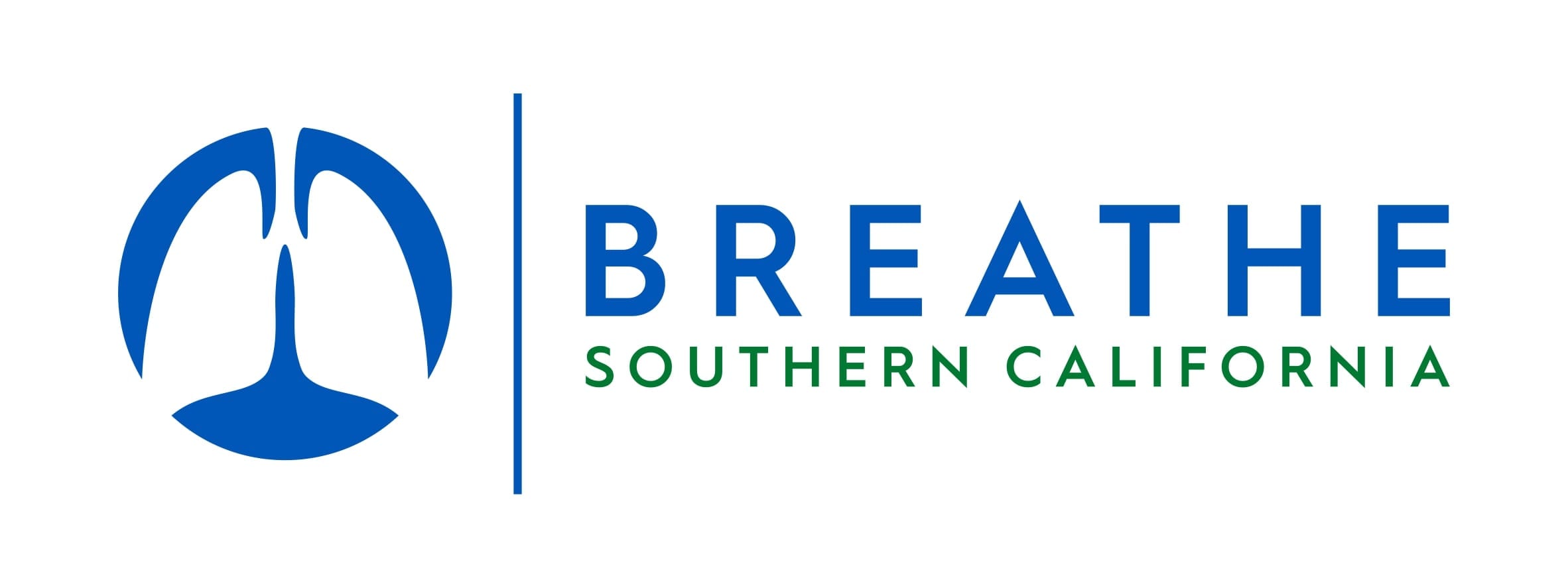Southern California was once seen as a world leader in reducing air pollution, taking dramatic steps along with the state to overcome the enduring image of a blanket of smog obscuring our skyline, choking Angelenos who struggled to breathe fresh air. But now, due to climate change, increasing transportation emissions, and a lack of political will, we are falling behind our counterparts in major European cities.
With an escalating number of days of poor air quality, Southern California needs to do more to not only regain the mantle as the leader in cleaning the air, but as a region with air that is not harmful to breathe.
With that in mind, and in recognition of California Clean Air Day, Breathe LA, which has worked for more than 115 years to raise public awareness of lung diseases, is announcing a new campaign to End Diesel Now.
Diesel exhaust is a major source of air pollution, with more than 40 substances contained in diesel exhaust listed as hazardous air pollutants by the United States Environmental Protection Agency and California Air Resources Board (CARB). In 1990, diesel exhaust was declared a carcinogen, and in 1998, CARB identified diesel particulate matter as a toxic air contaminant. Californians living near ports, rail yards, and freeways, where diesel fuel is used to operate heavy duty trucks, vehicles and machinery, are exposed to toxic diesel exhaust daily.
Southern California succeeded in dramatically reducing bad air days through strict emission standards, beginning in the 1960s and 1970s, even as the region built more freeways and increased the number of shipments coming through the Ports of Los Angeles and Long Beach.
Yet, we remain the smog capital of America—and our air quality is worsening.
The Impact to the Los Angeles Community
Asthma is the most prevalent chronic disease among children, affecting over 300,000 children in Los Angeles County.
Asthma rates in Los Angeles have increased dramatically over the last three decades. Asthma is the most prevalent chronic disease among children, affecting more than 300,000 children in Los Angeles County. Asthma is also the leading cause of children’s visits to hospital emergency rooms.
When these children grow up, their lungs won’t grow as fast as they should, which can result in underdevelopment and trouble breathing well into adulthood. In fact, children exposed to high levels of diesel exhaust are five times more likely than other children to have underdeveloped lungs.
Leaders from China and India still come to Los Angeles to learn from what we’ve done and see what policies they can implement to cut harmful smog in their own counties. But for the rest of the world, Los Angeles is no longer leading the way.
Cities Across Europe Lead in Banning Diesel
London implemented the Ultra-Low Emission Zone while Paris banned diesel vehicles that are more than 13 years old from the city center.
European cities have taken dramatic steps to protect their residents from diesel exhaust. London implemented an Ultra-Low Emission Zone, which charges drivers a daily fee if they are behind the wheel of a vehicle that does not meet air quality standards. In Paris, diesel vehicles that are more than 13 years old are banned from the city center during weekdays.
Overall, it is estimated that 24 European cities, accounting for 62 million people, will ban diesel over the next decade.
Los Angeles Must Act Now
Los Angeles must join them, and the time to act is now. More than 75 years ago, then-Los Angeles Mayor Fetcher Brown declared that the problem of smog would be eliminated over the course of four months. Ten years later, Mayor Norris Poulson declared, “We are in a desperate situation, and drastic steps must be taken.” In 1989, Mayor Tom Bradley encouraged city employees to work from home to reduce traffic and smog. And earlier this year, Mayor Eric Garcetti has promised “zero bad air” days by 2050.
What will the next mayor promise?
Banning diesel is the quickest path to cleaner air.
Urgent action is needed to reduce emissions polluting our air. Banning diesel is the quickest path to cleaner air. If we don’t act now, what kind of quality of life can Angelenos expect? Thousands of men and women live on our city streets and under and around freeways, breathing in toxic diesel exhaust. We know asthma rates are climbing. And as we look to the future, should athletes expect to wear gas masks when they compete in the 2028 Olympic Games?
The time to act is now.
It’s time for Los Angeles to reclaim its place as a world leader in fighting pollution, and time for Angelenos to finally have clean air to breathe.


